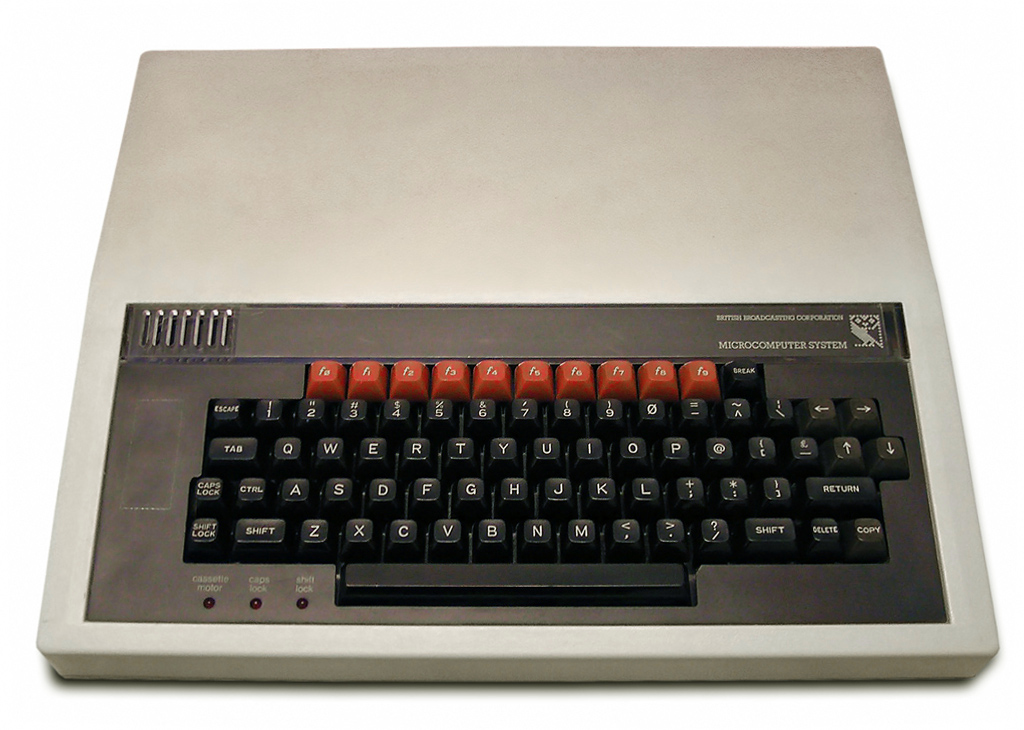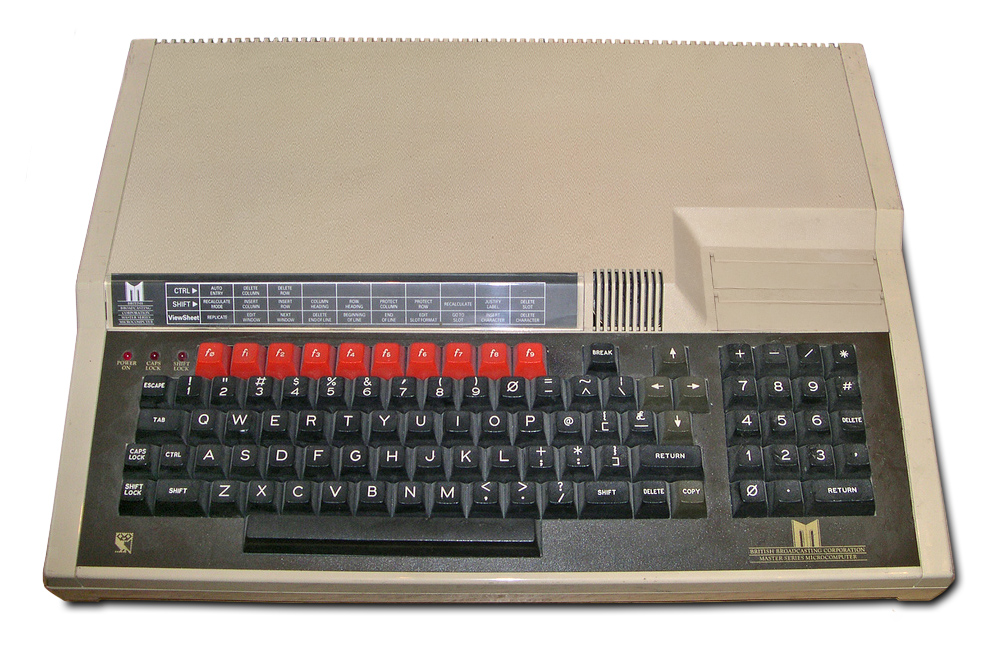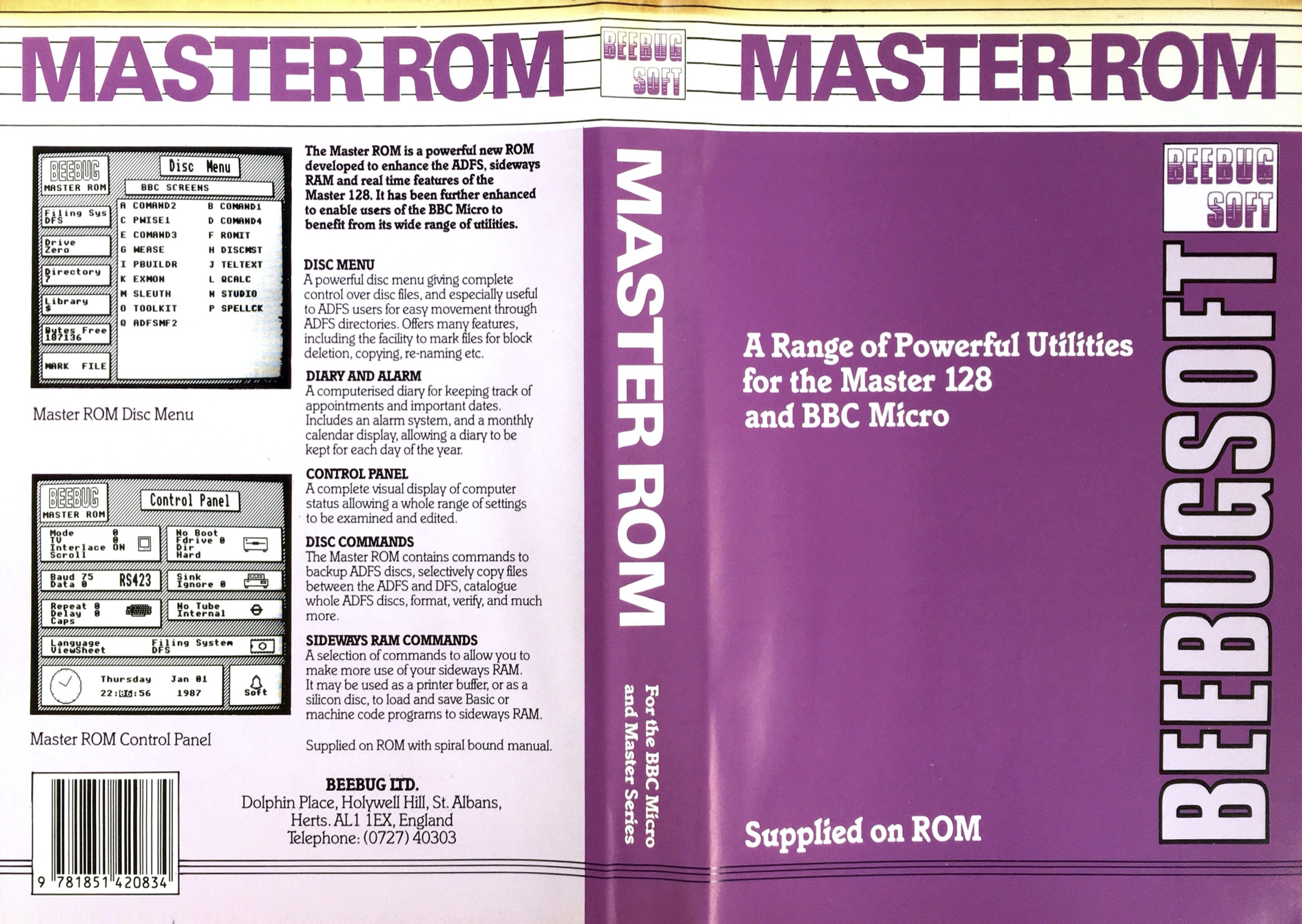Shortly after I was married, I bought a BBC Micro Model B from Acorn Computers which was very popular at the time and strongly promoted for education. Jane was horrified that having spent £399 on it I had the lid off within minutes to see how it worked inside!
We had a desk under the stairs with the BBC Micro, 14″ TV (as monitor) and a cassette player (for storage), and I spent quite a lot of time there!
Specification
The machine used a 6502 processor running at 2MHz which was twice as fast as other computers of the time and included high-performance RAM, 32K on the Model B. It had multiple ROMs fitted which could be paged for access. An RF modulator provided output to a TV monitor, and there were multiple other I/O ports supporting a number of functions.
I started with a tape recorder for storage, then added floppy disk drives (5.25″), and a sideways ROM & RAM board. After upgrading to a BBC Master, at right, I added an 80186 co-processor with GEM operating system.
The computer used the amazing BBC BASIC programming language (still available today), far in advance of previous BASICs I had used, and provided me many hours of enjoyment writing programs of all types.
Programs I Wrote
A friend commissioned me to write a stock control and invoicing program for his grocery business, paying me £150 for the task. It was great to earn money doing what I enjoyed as a hobby!
Icon Master : In 1985 I proposed a new ROM to Beebugsoft which they accepted and was called “Icon Master”. It enabled the user to create windows with icons and use the mouse to initiate actions. Although it took me quite a lot of effort I was paid about £1500 for the task, which was quite a lot of money at the time. I also received one of the early modems to allow me to upload updates more easily, and was allowed to keep that after the project finished. My documentation from that time is here, and there was a review in The Micro User (Jun 86, page 45, see references below).
Master ROM : The following year Beebugsoft commissioned me to write another ROM for the BBC Master, which they called the “Master ROM”, not the most imaginative name. I only had a Model B so, in addition to £2500, they also gave me a BBC Micro Master to work with. It was a general purpose ROM with a whole bunch of functionality, and quite a learning curve on new features! Unfortunately I misplaced all the documentation for that one, but the User Guide is here (note: after several months working together they still spelled my name wrong!). There was a short review in Acorn User (Oct 87).
Adventure Game Compiler : Then in 1989, after almost a year working on a new Adventure Game compiler program for the magazine I offered it to Beebug, but sadly it was turned down as they felt it would take up too much magazine space. Win some, lose some! It offered a BBC Basic compiler with machine code runtime, and had come from some ideas I had developed whilst at university. My notes here.
References / Resources
- Manuals
- Welcome booklet [PDF]
- BBC Micro User Guide [PDF]
- BBC Micro Advanced User Guide [PDF]
- BBC Master Reference Manual Part 1 [PDF]
- BBC Master Reference Manual Part 2 [PDF]
- BBC Master Advanced Reference Manual [PDF]
- BASIC ROM User Guide [PDF]
- Advanced BASIC ROM User Guide [PDF]
- Websites
- Files on Titan:
/Archive_Jekyll/files/computer/Machine – BBC Micro/…- Beebug magazine 12 volumes (from 8bs.com) [PDF]
- The Micro User magazine (early ones from 8bs.com) [PDF]
- Vol 4-4 (Jun 86) included review of Icon Master on Page 45
- Software & ROMs various
- Emulators various
- BeebEm5 GitHub: latest port of BeebEm starting from Windows
- B2 by Tom Seddon GitHub
- BBC Basic Programming Language (various platforms including Mac)



